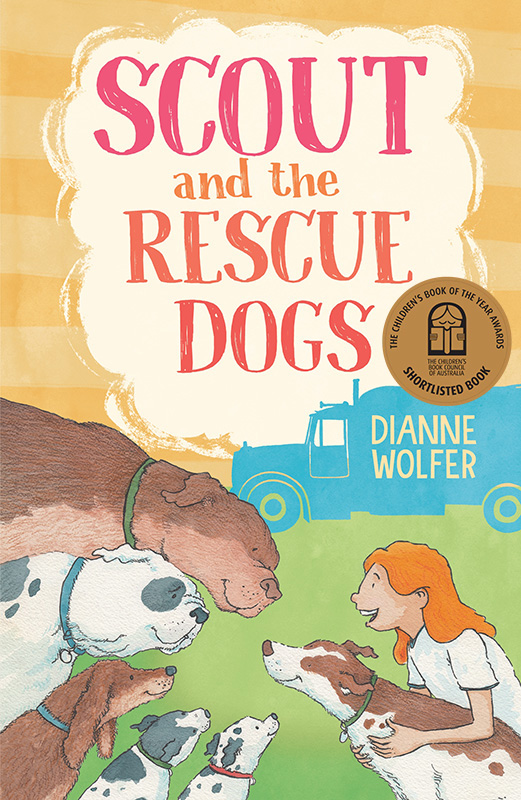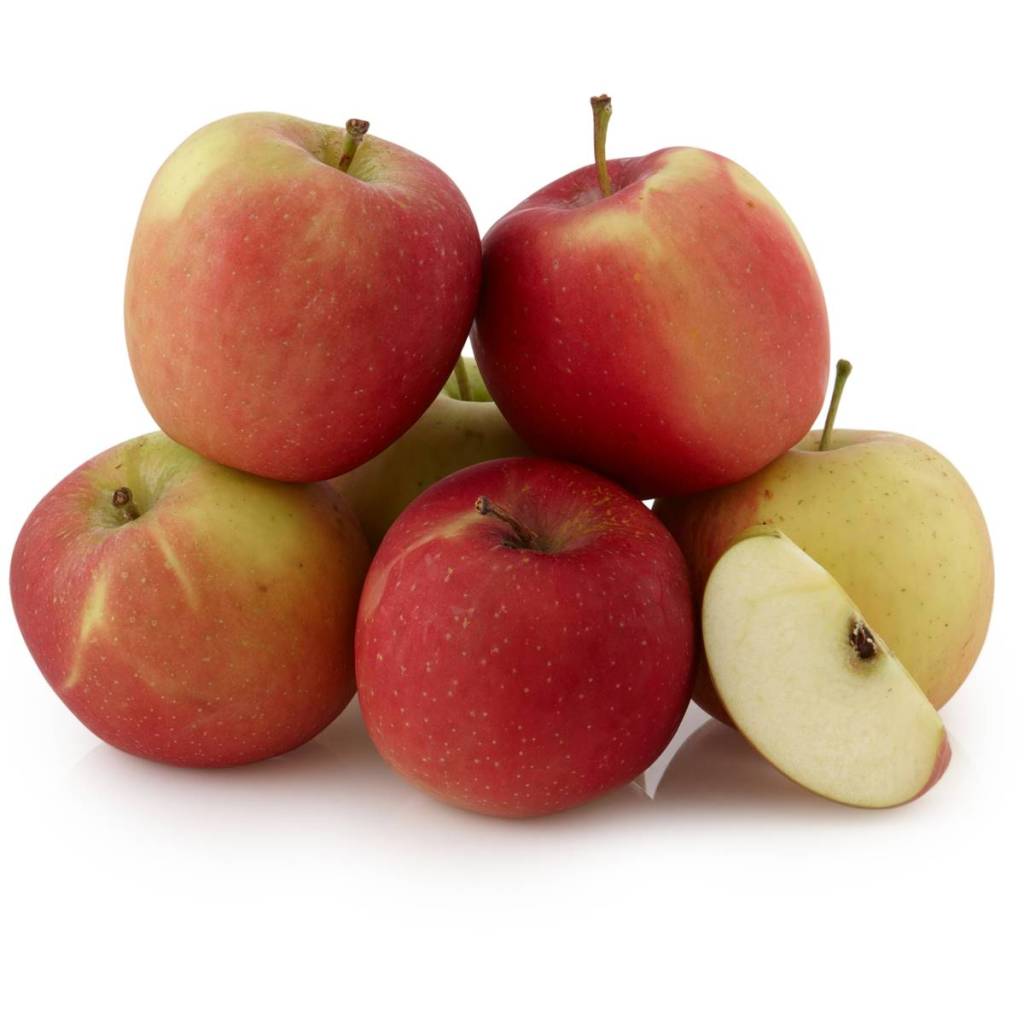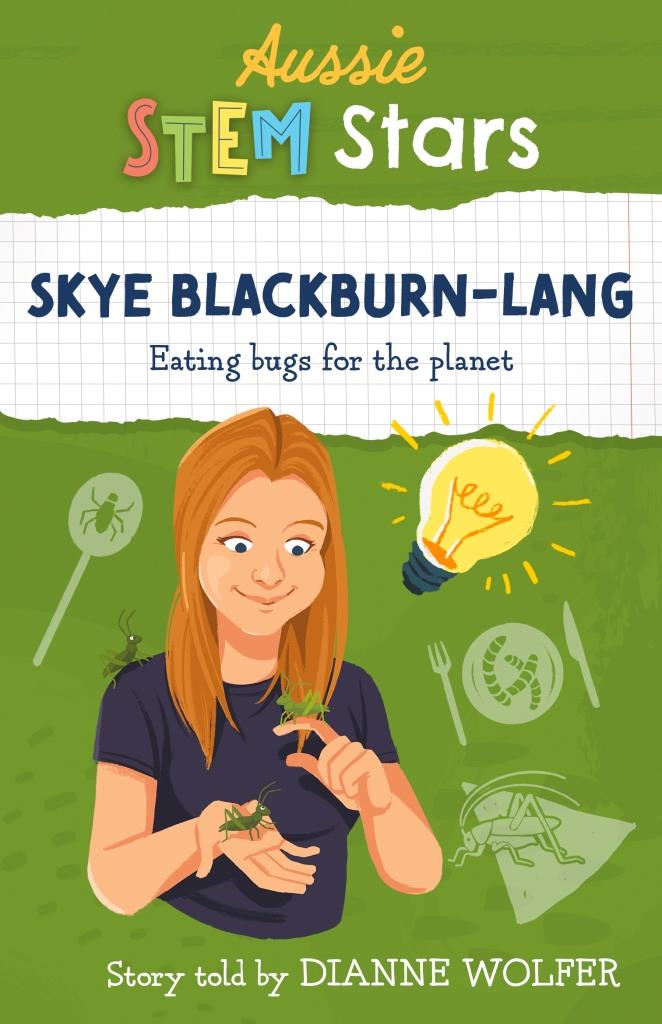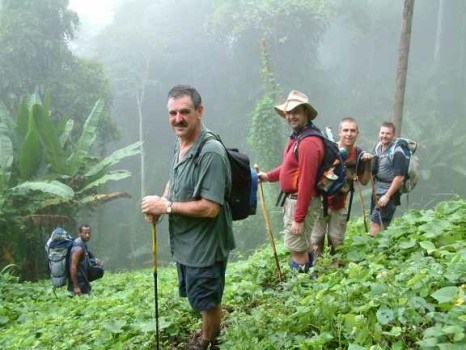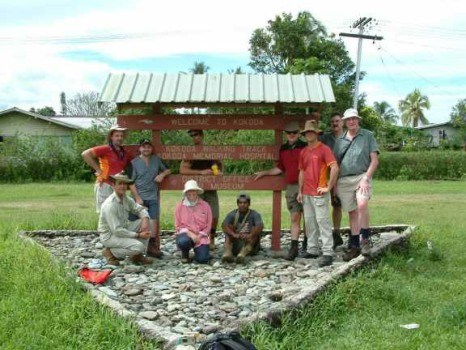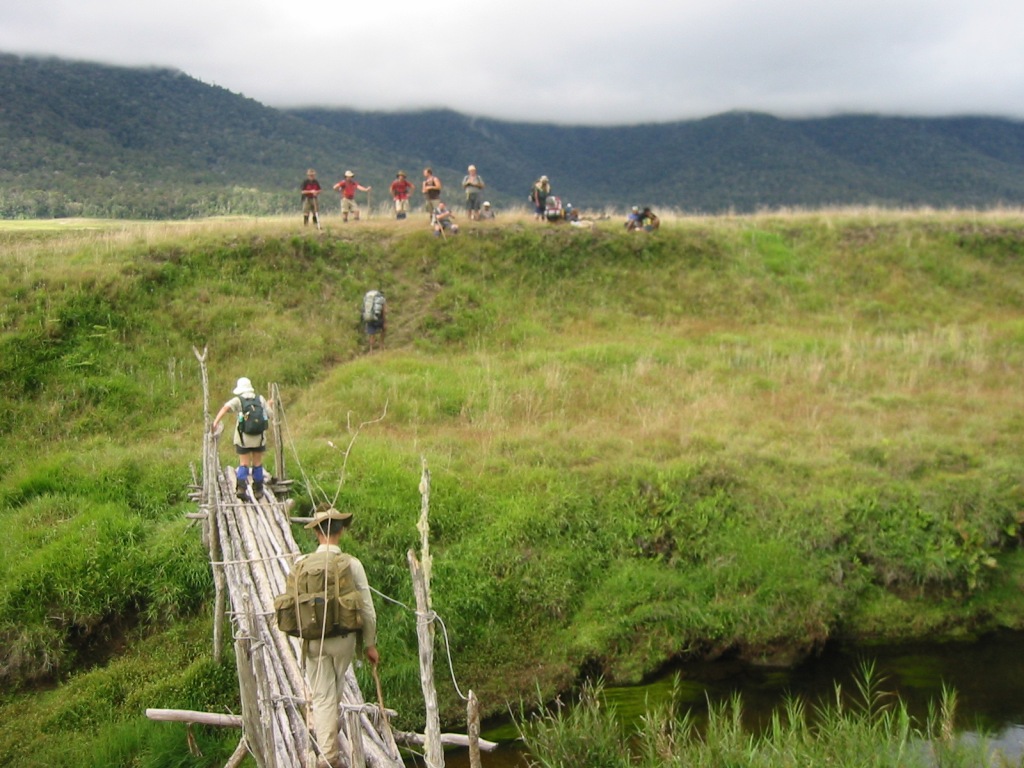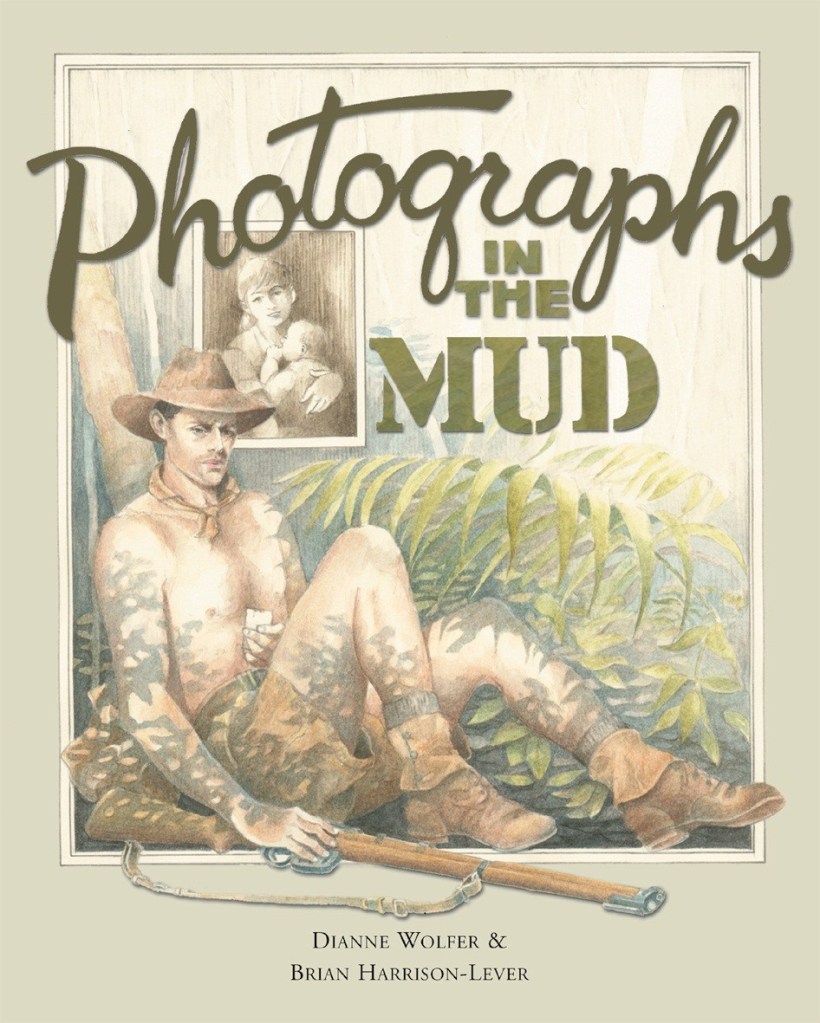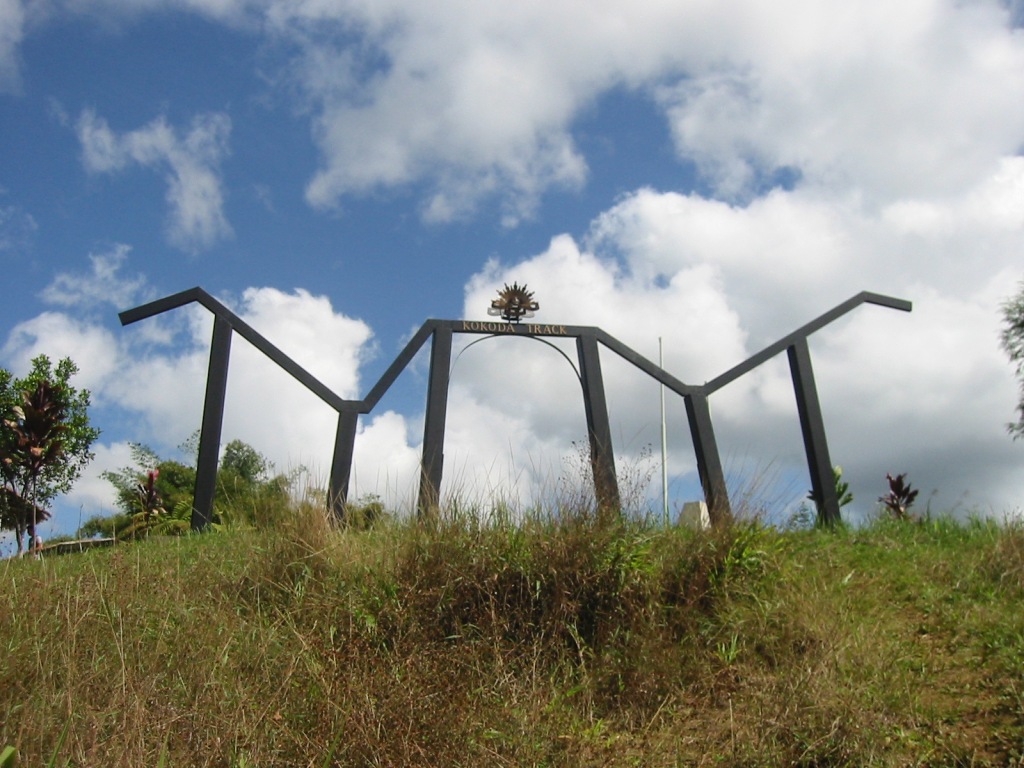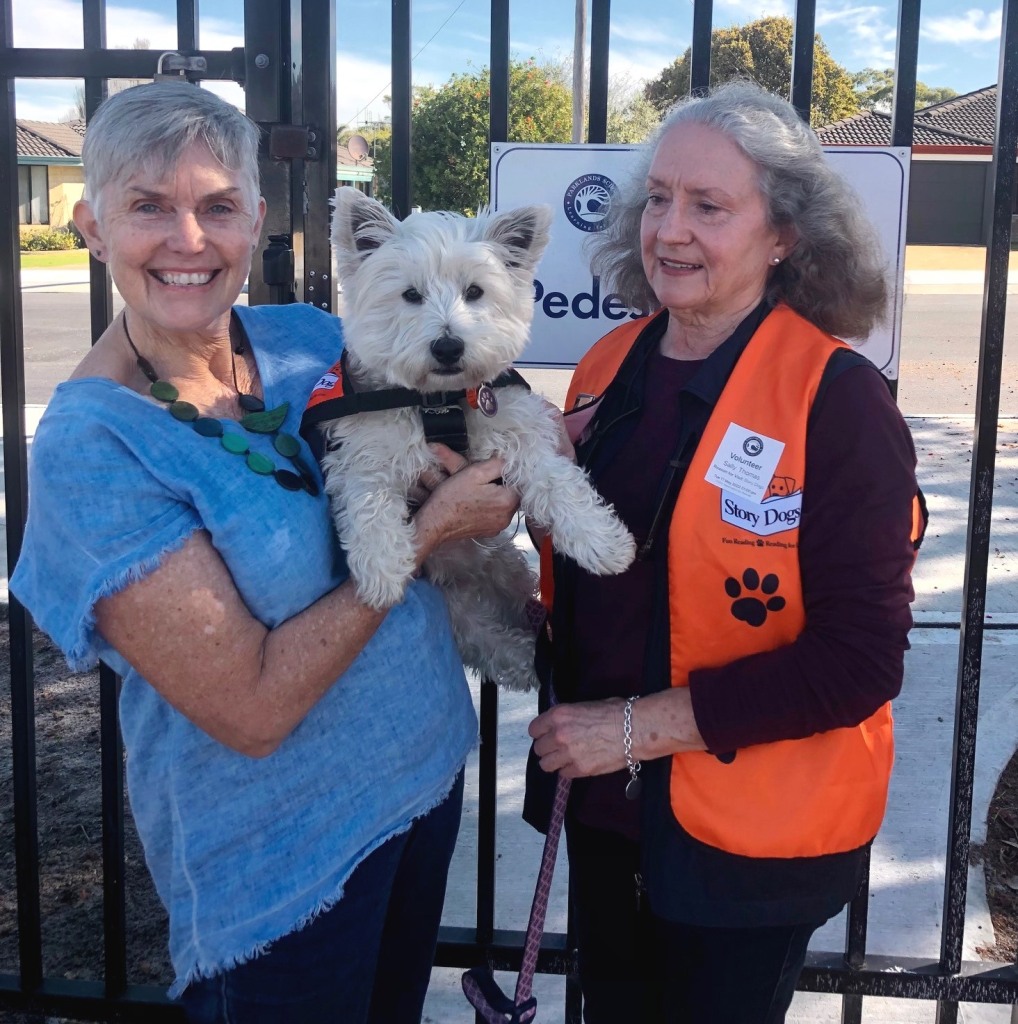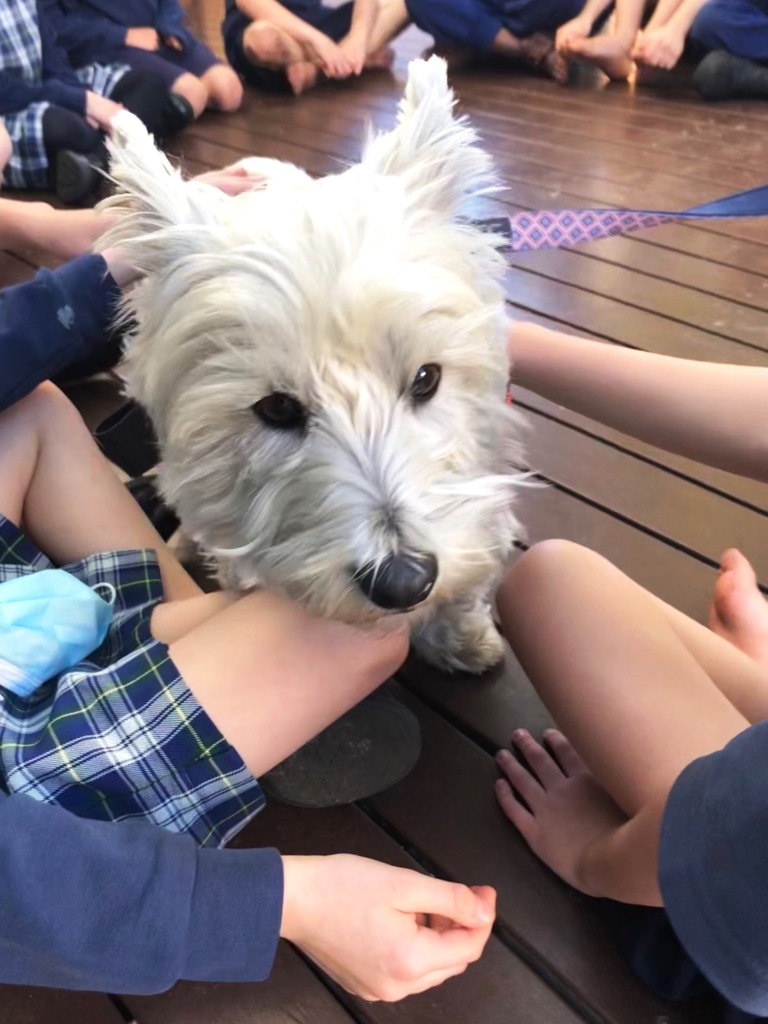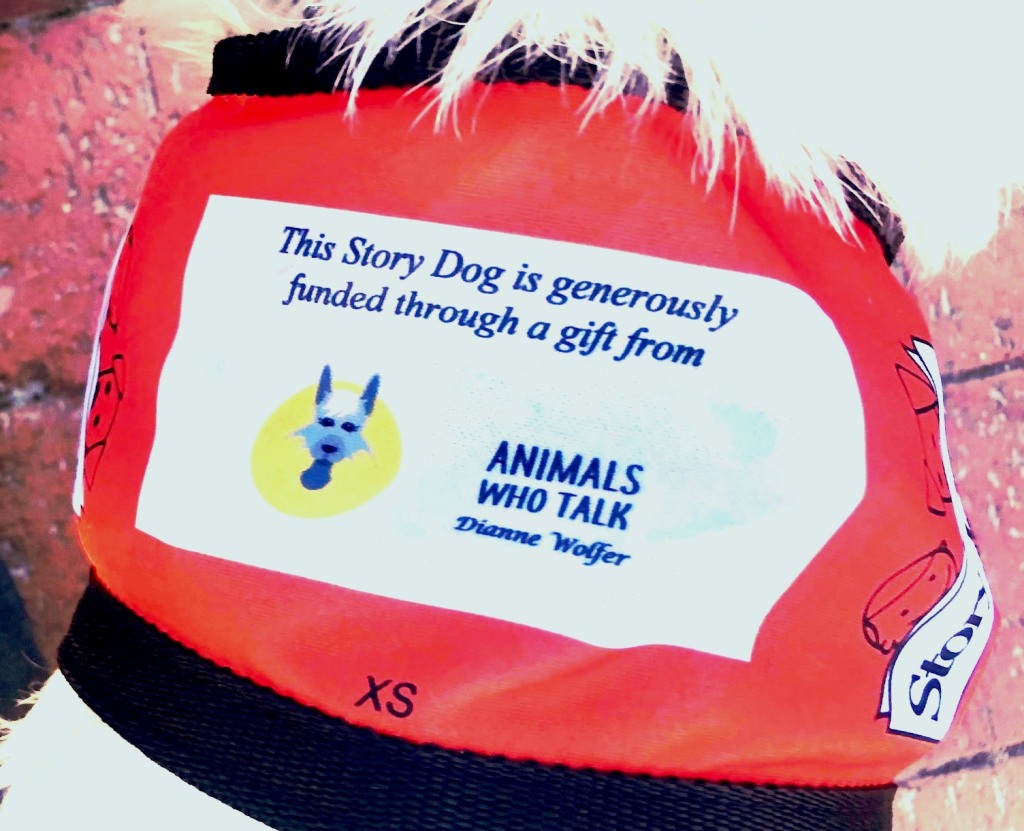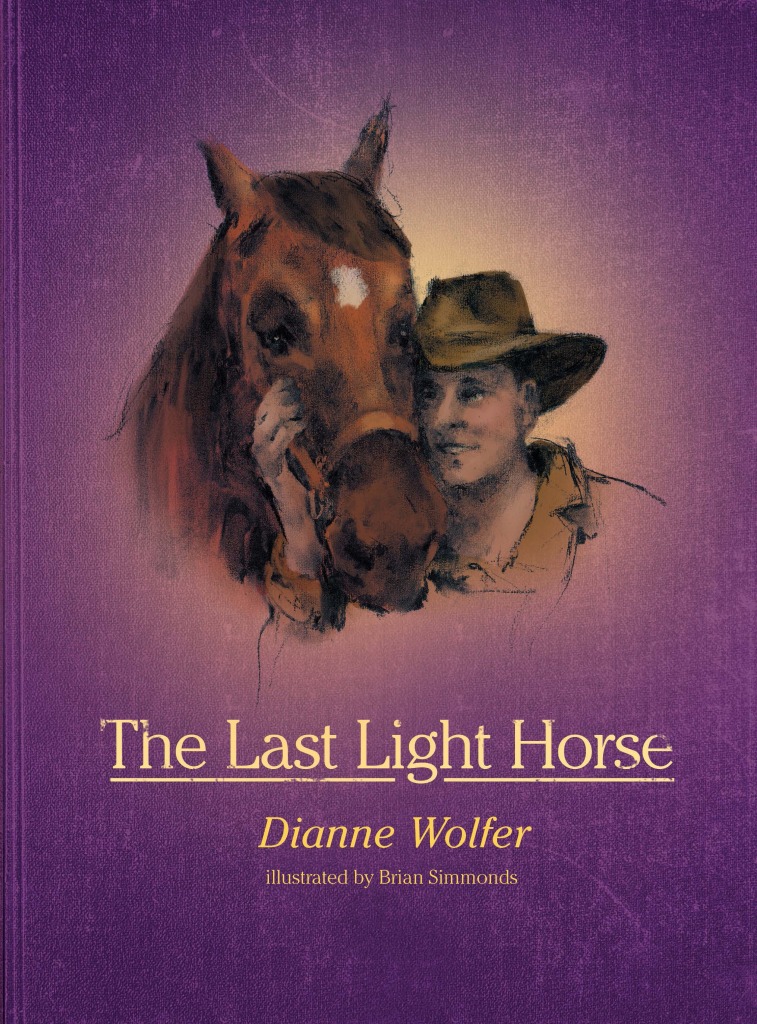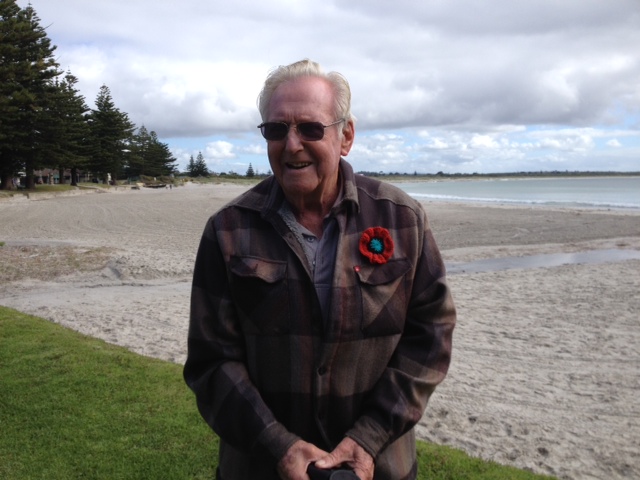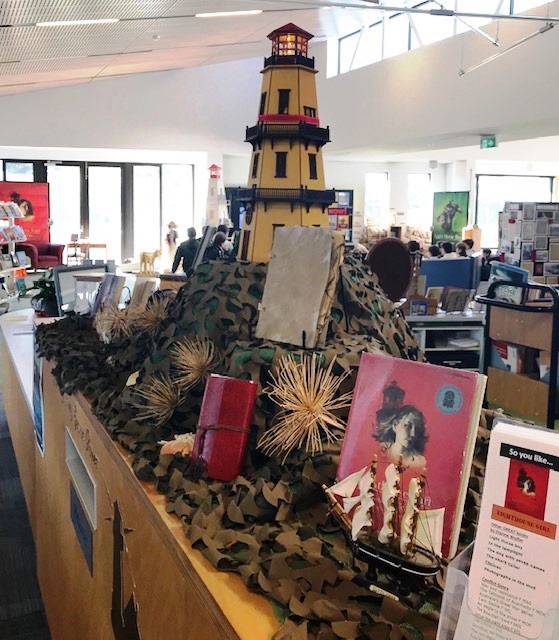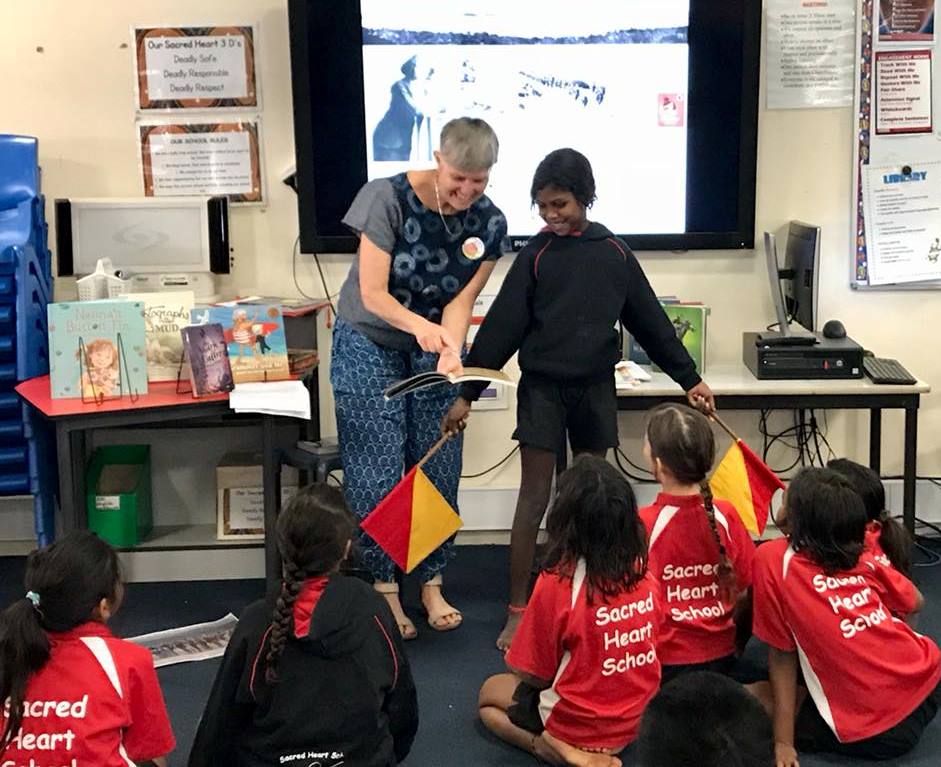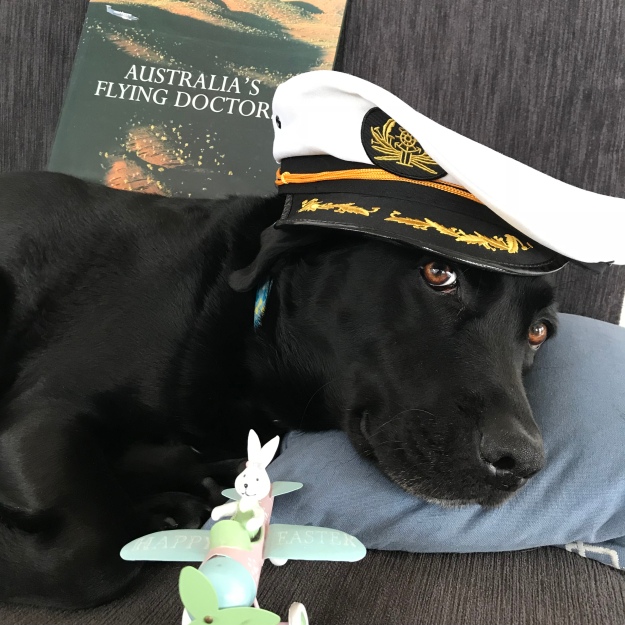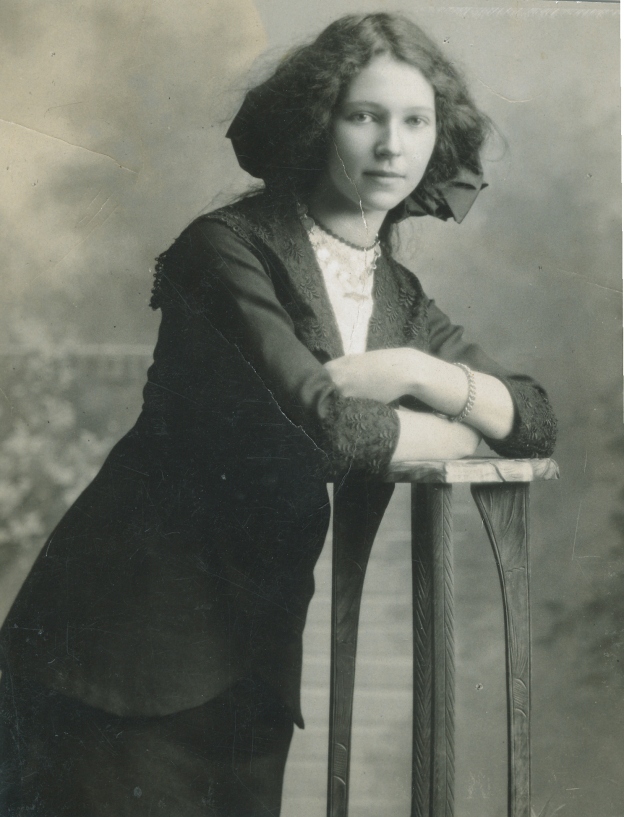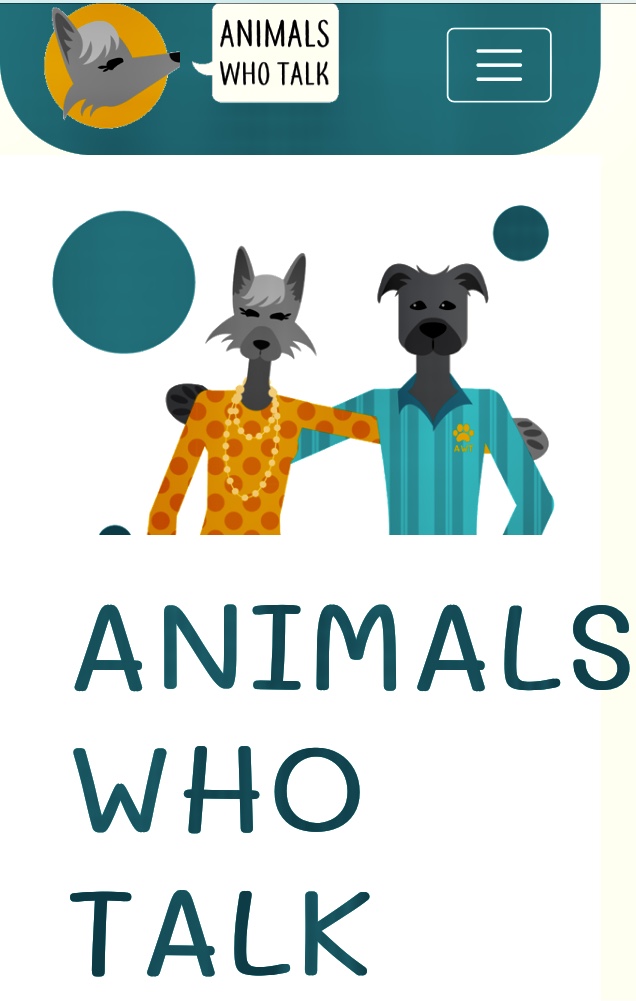This morning The Dog with Seven Names won the Best Book for Language Development in the 8 to 10 category of the Speech Pathology Awards. What a week! I’m thrilled to win this prestigious award. Little dog’s fictitious tail is wagging.
Today I’m presenting at the wonderful Celebrate Reading Conference in Fremantle, so I’m unable to be in Melbourne to accept. Lisa Riley, Publisher for Young Readers at Penguin Random House has stepped in again to accept on my behalf. Thank you Lisa.
The Speech Pathology Awards support literacy development and celebrate richness in language. Winning is a great honour for me. Here is my acceptance speech with some background of how the story came to be.

Thank you for this great honour. I wish I could be with you at the awards ceremony today however I have a prior commitment, presenting at the Celebrate Reading Conference in Fremantle, WA. Thank you, Lisa Riley, Publisher for Young Readers at Penguin Random House for representing me and accepting the Speech Pathology Book of the Year Award on my behalf.
My heartfelt thanks to the organisers, judges, sponsors and supporters of the Speech Pathology Awards. I am thrilled to win the Best Book for Language Development in the 8 to 10 Years category, especially with such prestigious fellow shortlistees. The Speech Pathology Awards are greatly valued by children’s authors as they celebrate all that is significant and precious in children’s literature. I love the way the judging criteria is broken into seven book elements and each element is then subdivided into four or more sub-points (35 in total). This level of detailed reading and seeing of books is professionally delightful.
When I read the judging guidelines, I was humbled that the judges felt that my Dog with Seven Names met such thoughtful and considered criteria. In particular I loved that they felt Dog represents diverse Australia, creates a sense of wonder, mystery and excitement, has universal appeal, tells a good tale and leads to conversation during the reading and long after the book has finished. I’m not sure which of those two latter elements I was most excited by.
As a regional author living five hours drive from what is said to be one of the most isolated cities in the world, it’s wonderfully reaffirming that a story set in wartime in an even more regional area of north-western Australia, told from the point of view of a dog, can win. Although I am far away, please imagine me at this moment sharing the good news with my peers at The Literature Centre. We will raise a glass to you all and later when I am home in Albany, my rescue dog, Harry, will receive an enormous bone. Writing anthropomorphically was not easy and watching the way he interprets our world often inspired my writing. Thanks Harry!
The Dog with Seven Names was one of two PhD Creative Works. The other work, The Shark Caller is told from a very different anthropomorphic viewpoint. Thank you to the University of Western Australia for scholarship funding. Thanks also to my agent, Clive Newman, my patient family and the team at Penguin Random House. Special accolades to Publisher, Zoe Walton and Editor, Mary Verney for their wise editing.
To research this story I travelled to remote parts of Western Australia’s Pilbara and Kimberley regions. I wanted to visit Port Hedland, Marble Bar and the harsh bushland beyond Australia’s hottest town. I went in search of the secret WW2 airfield at Corunna Downs and imagined Liberators lumbering north on bombing raids in 1943.
I timed my research trip to coincide with Broome’s extreme low tide, one of the few times each year when the wrecks of wartime flying boats are visible in the mudflats. I stopped to remember the countless women and children who died there and in a beautiful moment of synchronicity, met the daughter of one of the Dutch pilots. Karen Hasselo’s dad was 99 and living in Melbourne. She’d made the trip to photograph the wreck of his plane. I focused on sounds and smells, trying to imagine these settings from a dog’s perspective and I also thought about the child evacuees who fled their northern homes for safety in Perth and Geraldton.
The Dog with Seven Names explores a little known aspect of Australian history. I am grateful that winning this important award will help bring diverse voices from the past to the attention of contemporary readers. Writing can be a solitary and sometimes frustrating occupation. Days like this make it all worthwhile. Thank you from the bottom of my heart.
